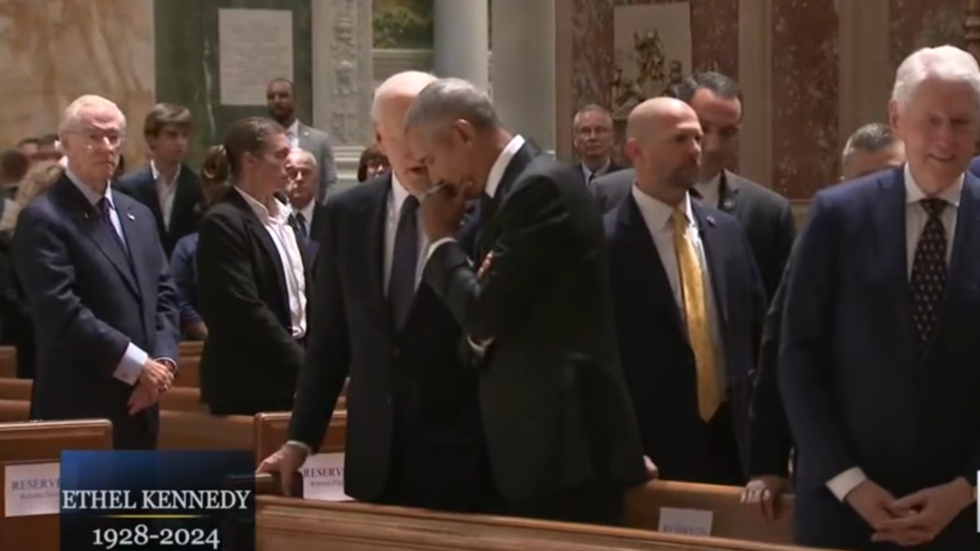Recent discussions surrounding U.S. President Joe Biden and Vice President Kamala Harris have raised eyebrows, particularly following a lip-reading interpretation of their private conversation with former President Barack Obama. This exchange occurred during the memorial service for Ethel Kennedy in Washington and has become a subject of scrutiny. According to Jeremy Freeman, a London-based forensic lip reader, Biden expressed doubts about Harris’s strength as a campaigner, allegedly stating, “She’s not as strong as me.” In response, Obama reportedly acknowledged this sentiment, indicating a sense of patience regarding the situation with a remark that “We have time.” The conversation was characterized as “very supportive” and devoid of tension, although the lack of direct mention of Harris leaves some ambiguity regarding the topic of discussion.
Biden’s team has responded skeptically to the New York Post’s claims, with spokesperson Andrew Bates questioning the credibility of the publication’s interpretation. Bates implied that the portrayal of the conversation was misleading and clarified that the true nature of Biden and Obama’s dialogue remains known only to them. Additionally, a source close to Obama echoed this sentiment, emphasizing that any narrative surrounding the conversation was exaggerated. The reactions from Biden’s camp and allies indicate a desire to protect the administration’s unity, underscoring that any internal doubts about Harris’s performance may not be as prevalent as reported by the media.
The overall atmosphere within the Democratic Party appears to be fraught with uncertainty as well. Some Democrats, voicing their concerns anonymously, expressed discontent with Harris’s position, suggesting that she isn’t a formidable alternative to Biden and that the party’s prospects are dimming. This commentary comes amidst significant challenges for Biden who, despite earlier assurances, has faced increasing pressure regarding his leadership ability and viability for reelection. Detractors note that party members, including Robert F. Kennedy Jr., were dissuaded from challenging Biden, leading to frustrations regarding the party’s direction and potential candidates.
Indicators of discontent within the party manifested in Biden’s recent announcement that he would not seek reelection, a decision that seemed to follow a period of strategic deliberation marked by confusion and potential party mutiny. Sources identified former House Speaker Nancy Pelosi as a key figure in this internal push against Biden’s campaign bid. Reportedly, Biden and Pelosi have not communicated since this critical juncture, suggesting a rift that could further complicate party dynamics as they approach the upcoming election cycle.
Amidst all this turmoil, Vice President Harris initially enjoyed a brief surge in popularity following the Democrats’ convention. However, recent polling has indicated significant challenges, with Harris trailing behind potential Republican nominee Donald Trump in key battleground states including Arizona, Georgia, Michigan, Nevada, North Carolina, and Pennsylvania. This decline in support raises crucial questions about her capacity to lead a campaign effectively and the overall electability of the Democratic ticket under current conditions.
In conclusion, the interaction between Biden and Obama, combined with Harris’s declining poll numbers and the internal strife within the Democratic Party, highlight an increasingly precarious landscape as the 2024 presidential election approaches. Biden’s apparent concerns about Harris’s campaign strength signal potential fractures within their administration. The unfolding drama within the party raises doubts about their united front against Republican challenges and invites deeper scrutiny of Harris’s role and effectiveness as the candidate moving forward. These developments suggest that the Democratic Party must navigate a complex web of internal dynamics and external pressures in the months leading up to the election, as they seek to maintain coherence and strategic advantage amid growing uncertainties.

